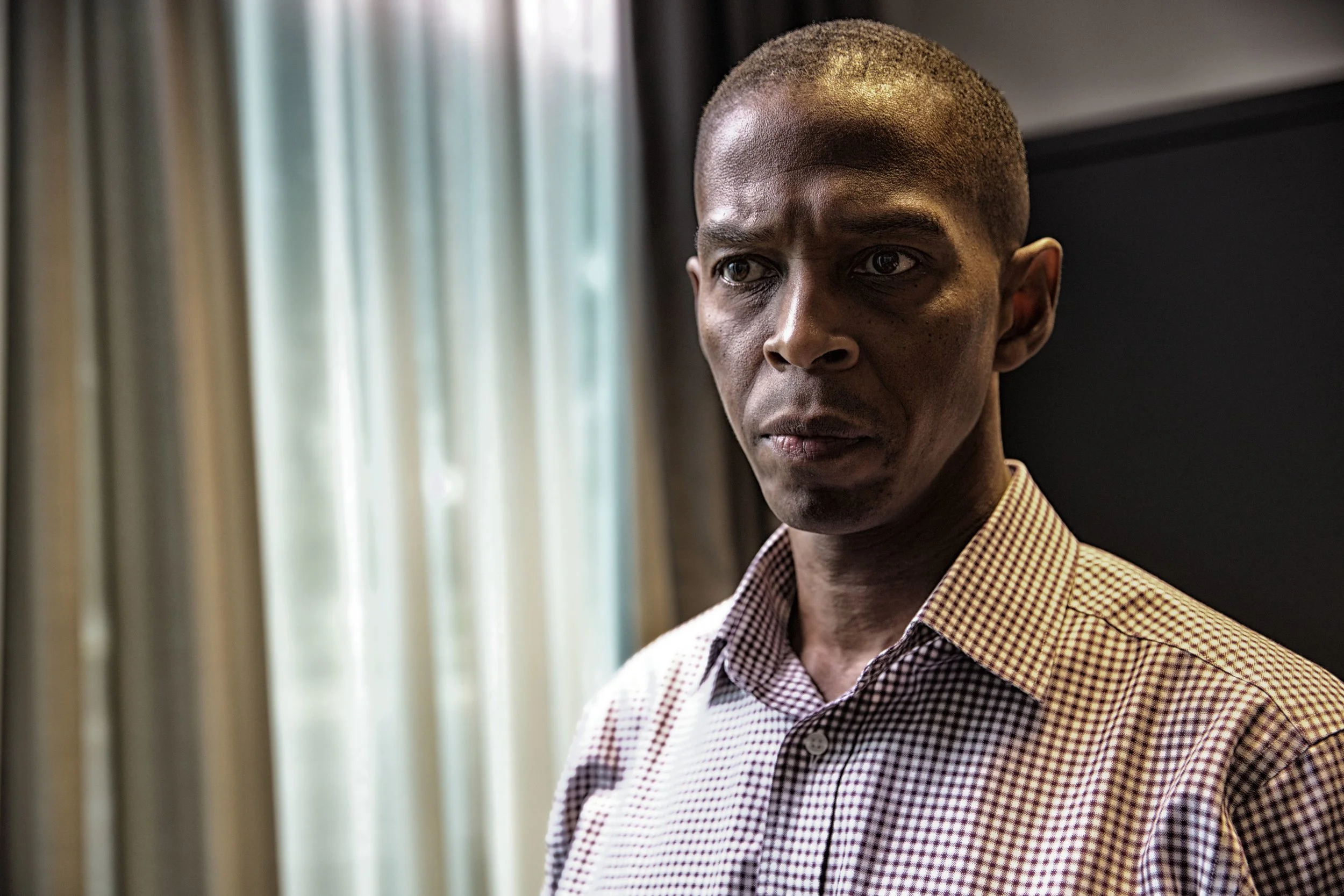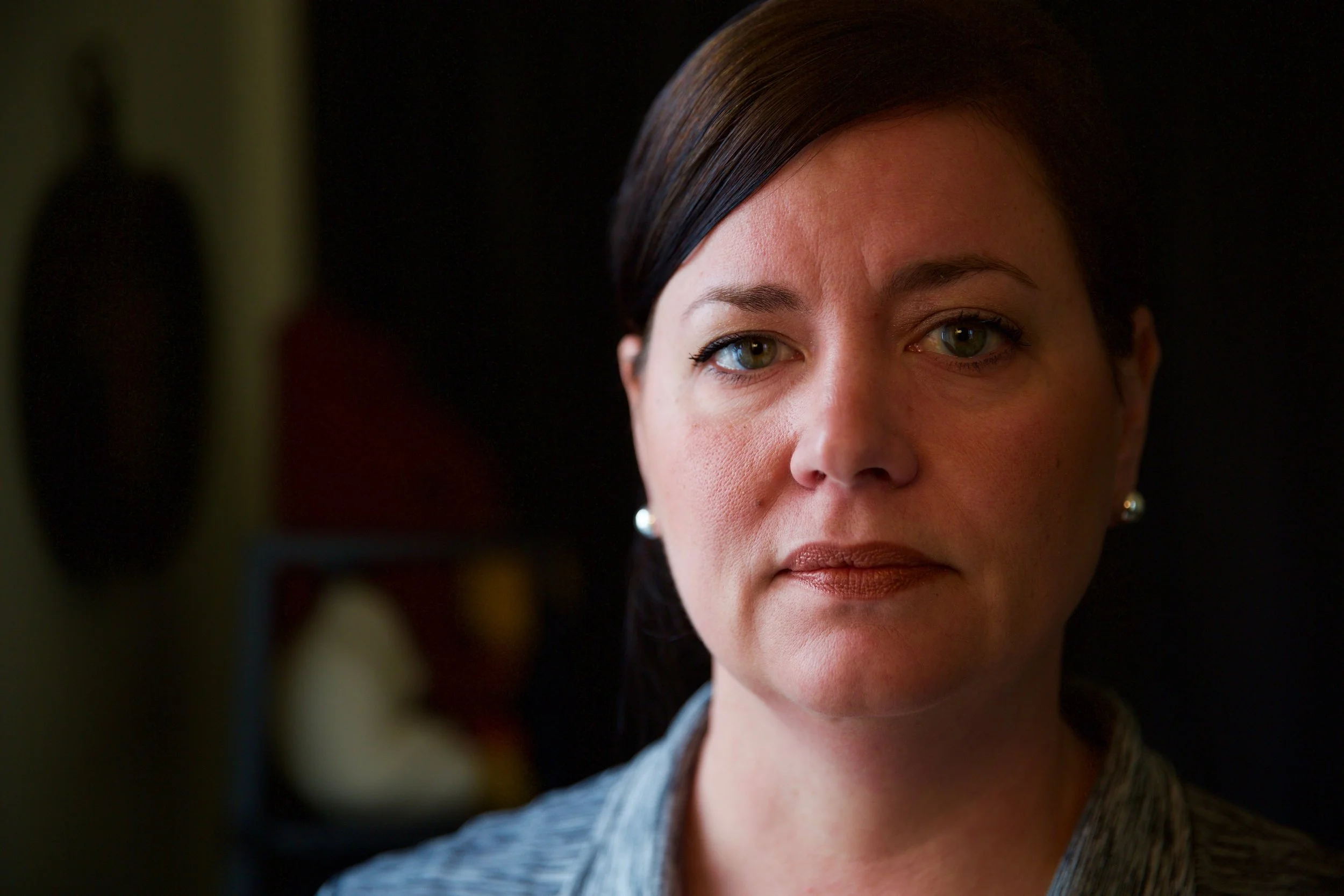Richmond Justice
STORIES + PORTRAITS
John | September 9, 2016
John Shinholser is President of the McShin Foundation, a provider of detox and recovery services and sober living residences in the Richmond area. Founded in 2004, the organization supports individuals and their families in recovering from addiction, and appeals to government agencies and community groups to reduce the stigma of addiction and reframe the way substance use disorders are understood and confronted.
A lot of people are making a lot of money from locking up addicts. People say they want reform, but we’re up against a bureaucratic system of care funded by special interest groups. Substance use disorders have been criminalized, and recovery isn’t possible through the existing so-called solutions—incarceration and drug treatments. That approach creates a revolving door of substance use and incarceration—with huge profits at every step of the way. Reform isn’t a big-money special interest, so it doesn’t get attention.
How does the system repeat itself? Consider the financial ratings agencies, which have huge clout on Wall Street. These are the firms that do risk assessments on localities to tell banks whether they’re good bets for lines of credit. The financial crisis proved that the ratings system was crooked. Remember? The ratings agencies gave the housing market high marks right up to the beginning of the meltdown. Today, those same agencies will give a triple-A rating to a city, a county, or a state that would rather spend $8,000 to incarcerate a opiate addict when it could spend $1,500 to provide recovery support services. When you support recovery, you see a faster increase in public safety and a quicker reduction in recidivism. To do the opposite doesn’t make sense. Yet ratings agencies ignore this, and their positive assessments help to enable localities to fund the very systems that make these cycles of substance use and incarceration persist.
“We’re generating results with total disdain for the system.”
I’ll give you another example. Maybe you've read that Suboxone is the new miracle drug for opiates because it helps people to get off of heroin. Well, it is a harm reducer: Since the introduction of Suboxone, the number of heroin overdoses has gone down. But it’s not recovery. Suboxone is the number-one drug abused in Southwest Virginia. This is great for the drug companies, but we're talking about people's lives.
This isn’t a new problem. Let’s go way back to cocaine. Sigmund Freud wrote about cocaine, arguing that it was the solution for opiate addiction. He retracted that idea only a year later. In the ‘70s, when Valium came out, that was said to be the cure for alcoholism. Then scores of people became addicted to Valium, and today we have as many people overdosing on Valium as ever before. Methadone, like Suboxone, has reduced the harm of drug addiction. But none of these drug treatments equal recovery. They equal a larger bureaucratic system of care that taxpayers continue to fund—unnecessarily. Until our system recognizes and fully funds authentic recovery support services, we’re going to continue spending too much money and seeing too little progress.
I’m in recovery myself: I’ve been clean and sober for 34 years. And every single day for these 34 years, I have had contact with the criminal justice system. I travel in recovery circles. I promote recovery services. I go to recovery group meetings. For 34 years, my finger has never left the pulse of the problem and the solution. Our system gets so close to the trees that it doesn’t see the forest any longer. I’ve always been watching the forest.
The McShin Foundation started 12 years ago. We’re recovering people helping recovering people. Over the last 12 months, we’ve generated $1.6 million in revenue. We’ve helped tens of thousands of people. We have 160 recovery residence beds. We’re working in five local jails. Government isn’t funding any of this. We get a little reimbursement money from one agency, but it’s less than 2% of our budget. We’re generating results with total disdain for the system.
When you talk to the sheriffs at the jails where we work, they will tell you: If they had the choice to lock up someone with a substance use disorder or send them to our program, they’d send them to our program. We could do the same for the Department of Corrections, but they don’t want us in there. Why? The sheriffs who run the local jails are elected officials: Voters want the results we produce, and special interests aren’t overly involved in local campaigns, so the sheriffs listen to the voters. Department of Corrections officials are appointed by professional politicians following campaigns bankrolled and shaped by well-funded special interest groups. Just follow the money and you see the system take shape.
— interviewed August 30, 2016
















